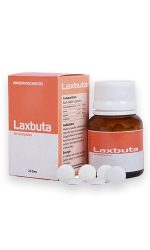Immune system cells are normally present as cells circulating in blood and lymph, as collections anatomically defined in lymphoid organs and as cells dispersed in virtually all tissues.
Like all blood cells, the cells of the immune system also originate in the bone marrow, where many also mature. There are several types of immune response. More broadly, the different types of immune responses fall into two categories: innate responses (natural immunity) and specific or adaptive immune responses (acquired immunity).
Natural immunity is that present at birth. It is the defense mechanism we have before we even expose ourselves to any foreign substance. This is the main line of defense against invading organisms and the first response to a microbial attack. Their mechanisms are fast, fixed in their mode of action and effective in disrupting most infections at an early stage, however, they do not always have the ability to eliminate the infection. Its characteristics are those that it presents throughout life, having neither specificity nor memory.
The components of innate immunity are mechanical barriers, secreted products, and include mononuclear phagocytes and Natural Killer cells. The innate immune response not only exerts an important protective function but also serves to initiate and regulate the subsequent acquired immune response.
The acquired immunity is not present at birth but is acquired as part of development. The acquired immunity can be divided into two broad classes: (1) antibody-mediated or humoral immune response, where the specific recognition of the antigen in the effector phase is mediated by the antibodies. And (2) cell-mediated immune response, which is directed against cells carrying foreign antigens on their surface. The cell-mediated response is physiologically more important for eradicating intracellularly living microbes or viruses.
The immune system, a set of defense and healing mechanisms of our body, is highly competent and controlled, performing its functions without compromising the rest of the body. However, many autoimmune diseases, immunodepression syndromes and cancer may be the result of disorders in the immune system, where the action of this decisively determines the patient’s prognosis and an inadequate or insufficient immune response can mean the loss of the body’s fight against the disease. In these cases, why not rehabilitate it and stimulate it to perform its function, guiding you to eliminate the disease?
Unlike the drugs used by allopathic medicine, which act directly on the physiological processes related to the symptoms of the disease, ANBUTA PLUS promotes the improvement of the general state of health of the individual, stimulating his immune system to trigger appropriate responses for each situation.
Thus, homeopathic treatment allows the individual to restore health and prevent disease without, however, producing the side effects experienced by many of the conventional treatments. The incredible adaptability and intelligence of the immune system, which keeps us healthy, despite the considerable adversities, is crucial, and Hahnemann called this intelligence “life force,” describing it as “the spiritual force that reigns supreme.” It is important to note that the existence of this force that works to keep us as healthy as possible before we know the cells and molecules that make up the immune system was perceived and accepted. Throughout its evolutionary history, multicellular animals have been infected by microorganisms. In response, they have developed a series of defenses that are currently used.
Physical and chemical barriers, such as skin and mucosal surfaces, limit microorganisms to the outer surfaces of the body and, when pathogens can break down these barriers, are usually destroyed by the immune system. Thanks to this system, animals can resist almost all types of microorganisms or toxins that tend to damage tissues and organs and even often protect us from infections and from modified cells such as cancerous ones. Currently we all know this system which is made up of numerous cell types and a variety of molecules which are scattered throughout our body.
Prof. Dr Dorly Buchi
Researcher





